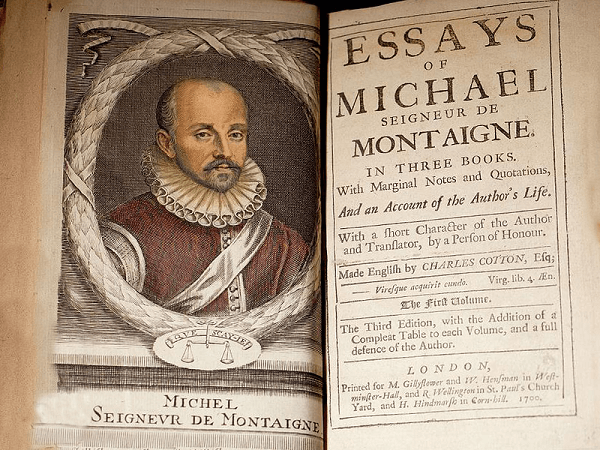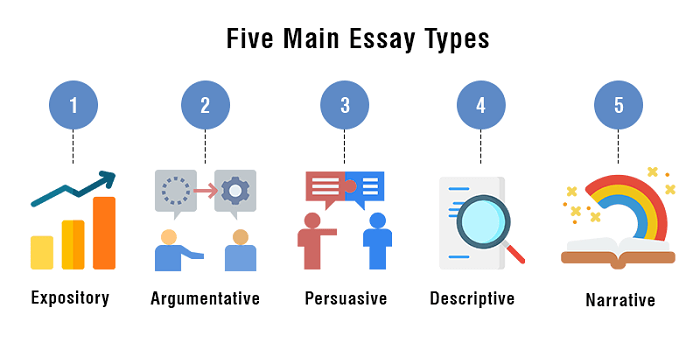What is an ESSAY
An essay is a piece of writing which provides the author's perspective on some subject or topic. Its length can range from 100 words to 1000 words or maybe more. Essays can be formal and informal. Formal essays are often written for serious purposes, a great example of a formal essay would be an essay for a school magazine on some serious topic or subject or an essay for a newspaper article however informal essays are characterized by unconventionality and totally depends on an individual's taste. Informal letters are usually used to express one's opinion on a topic with a bit of humor and rambling structure. Essays have become an inseparable part of formal education in many countries including India. Primary and secondary students are taught well-structured essay formats to ameliorate their writing skills. Essays have also become a way to assess the performance of humanities students during their final exam History of EssayThis form of literature is not of ancient origin. In the year 1571, the 'essay' was invented by a French philosopher named Montaigne. He called his short and minuscule philosophical writings which were products of the moment by the French word 'assai'. The essay became a good source to deliver one's feelings and share /her own philosophy through them. Essays can be used for different purposes like criticizing someone, and basic observations of daily life. There are many countries that have included essays in their formal education. Writing essays on a regular basis can help in expanding your knowledge about different things, and it also helps in developing writing skills. According to "Oxford English Dictionary" the person who used the word essayist for the first time was" Ben Jonson". When England was going through the "Age of Enlightenment", polemicists of England used essays as a way to influence their readers. Addison and Steele were one of the most celebrated essayists of the eighteenth century. Essays existed in Japan way before they existed in Europe, they existed by the name "zuihitsu". 
Types Of Essays:The type of essay basically depends upon what the writer wants to convey to his readers. Essays basically have 5 types. 
Format of an Essay:There is no hard and fast rule about how an essay should look. An essay is all about the thoughts of an individual, so we can't confine it by putting boundaries on it. However, a basic structure is followed, it is to help the writer only. Now let's have a look at that basic structure. It basically tells the reader what they are going to learn about in this essay. i) Introduction:This is the start of an essay, so this should look intriguing. Good phrases or some catchy lines related to the subject could be used to attract the reader's mind. The writer can also give the synopsis of his topic in the introduction, about what this essay is going to be and its contents. It is not more than 5-6 lines. Skills like paragraph writing are of great use here. The introduction is a great way to hook the reader/draw and keep his attention. You can also start by giving the definition of the topic to the reader or you can ask a question. ii) Body:Writing an essay is like making a sandwich, so the body is the ingredient that helps you make your sandwich delicious. It is placed between the Introduction and the Conclusion. This is the most important part of an Essay; it is the crux. This is not only limited to one or two paragraphs, you can go beyond that and write 5-6 paragraphs to make your essay knowledgeable. While the body is the most important part, this is also the part where most writers make mistakes. People write in a haphazard manner which leaves the readers confused. So it is very important that before writing you organize your thoughts, pen down the important points in a rough paper, and then start writing. This makes your essay more presentable. We provide most of the information in the body, one of the ways is to write in a systematic flow, for example, if you are narrating a story you should write in chronological order so that the reader can comprehend. The body also provides evidence to prove and influence the reader to accept the writer's point of view. iii) Conclusion:This part is the end of the essay. Most writers end by giving moral knowledge of the story. The conclusion looks a lot like the introduction part of the essay, but make sure that its syntax and the word it contains are different from the introductory part. The conclusion gives you a great place, to sum up, your story and argument. It is very necessary to write the conclusion and you should make sure that you didn't leave any hanging threads. Tips on How to make your Essay a great Essay:
Next TopicPollution Essay
|
 For Videos Join Our Youtube Channel: Join Now
For Videos Join Our Youtube Channel: Join Now
Feedback
- Send your Feedback to [email protected]
Help Others, Please Share









